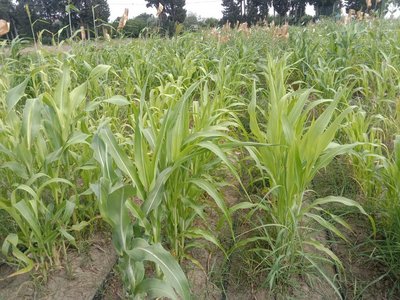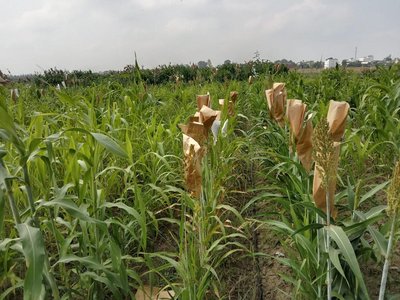Global climate change, towards higher temperature, greater aridity and more frequent erratic climate events, become a major threat to agricultural sustainability, food security and social stability.
The rapid increase of World population and industrial development are giving rise to increased carbon dioxide concentration in the Earth's biosphere.
The world will heavily rely on C4 crops. While C4 plants constitute only about 3% of all plant species, they account for nearly one fourth of all annual net primary productivity, making them central ecologically.
C4FUTURE will study two important C4 cereal crops: maize (Zea mays) and sorghum (Sorghum bicolor).
Maize can be processed into a variety of food, animal feed and industrial products [3]. Sorghum is very attractive for potential gains in animal feed, bioenergy and the manufacture of specialty health-promoting (antioxidant rich) foods. Its popularity is resurging in Europe as a substitute for traditional grains diet and for meeting gluten-free needs.

